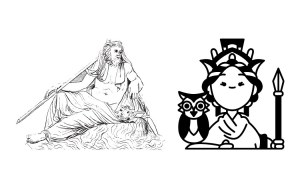The phrase “你喜欢我吗?” (pronounced nǐ xǐ huān wǒ ma?) in Chinese translates to “Do you like me?” in English. It is a straightforward question that someone might ask when they want to know if the other person has feelings of affection, fondness, or interest towards them. Let’s break down the components of this phrase in detail:
1. 你 (nǐ) – “You”:
- 你 is the pronoun for “you,” used in informal or conversational contexts. It’s the most common way to address someone directly.
- It is singular, so it refers to one person. If you’re addressing more than one person (in a formal context), you would use “您” (nín), though this is typically used in more respectful situations.
2. 喜欢 (xǐ huān) – “Like” or “To Like”:
- 喜欢 is a verb that means “to like,” “to enjoy,” or “to be fond of.” It can be used to express affection or liking for things (such as food, activities, or objects) or people.
- In this context, “喜欢” refers to liking someone, in the sense of having feelings of attraction or affection toward them.
Example:
- “我喜欢这本书” (Wǒ xǐ huān zhè běn shū) – “I like this book.”
3. 我 (wǒ) – “I” or “Me”:
- 我 is the pronoun for “I” or “me.” In this sentence, it refers to the person who is asking the question (the speaker).
- It’s important to note that in Chinese, the subject (like “I” or “you”) is often omitted if it is clear from context, but in this case, it is included for clarity.
4. 吗 (ma) – Question Marker:
- 吗 is a question particle used at the end of a statement to turn it into a yes/no question. It does not have a direct translation in English but serves to signal that the sentence is a question.
- In this case, “吗” indicates that the speaker is asking if the listener likes them. The answer would typically be either “yes” (是, shì) or “no” (不是, bù shì), or another form of response.
Putting it all together:
- “你喜欢我吗?” (nǐ xǐ huān wǒ ma?) means “Do you like me?” in English.
- This question can be used to inquire about someone’s romantic interest, affection, or general liking for you, though it’s more commonly used to ask if someone likes you in a romantic sense, especially in more casual or informal conversations.
Context and Usage:
- Romantic Context: The phrase is most often used in romantic contexts where one person is asking another person whether they have feelings of affection toward them. It can be seen as a bit direct and might be used after some time of getting to know each other.
Example:
- Person A: “我们认识了一段时间了,我有点担心,你是不是不喜欢我?”
- Person B: “你喜欢我吗?”
- (Person A: “We’ve known each other for a while, and I’m a little worried. Do you not like me?”
Person B: “Do you like me?”)
- Casual Context: In less serious situations, it could be used playfully between friends, especially if you want to confirm if the other person enjoys your company or likes you in a general sense.
Alternative Phrasing:
- If you want to be more specific about romantic feelings, you might say “你爱我吗?” (nǐ ài wǒ ma?), which means “Do you love me?” The verb “爱” (ài) means “to love” and has a stronger, more intimate connotation than “喜欢” (xǐ huān), which can simply mean “like” in the more casual or less intense sense.
- Another way to ask about someone’s feelings might be:
- “你对我有感觉吗?” (nǐ duì wǒ yǒu gǎn jué ma?) – “Do you have feelings for me?”
Conclusion:
“你喜欢我吗?” (nǐ xǐ huān wǒ ma?) is a common question in Mandarin that means “Do you like me?” It is typically used to ask someone if they have feelings of affection or romantic interest in the speaker. The structure of the question is simple, with the key elements being the pronouns for “you” (你), “I” (我), the verb “to like” (喜欢), and the question particle “吗” (ma) at the end.




Leave a comment